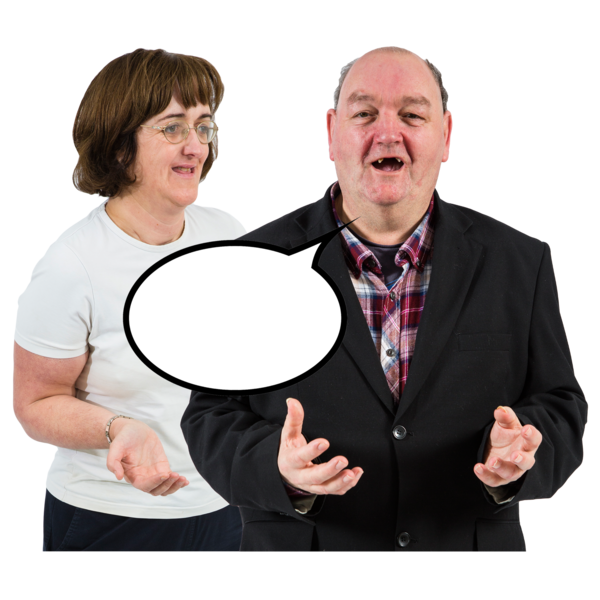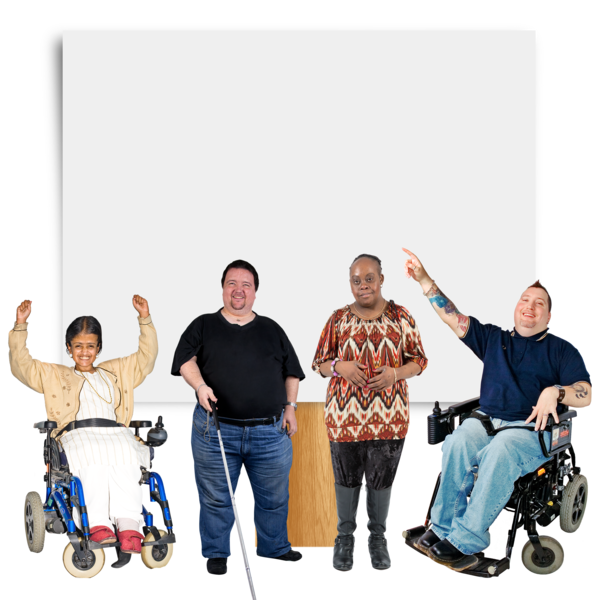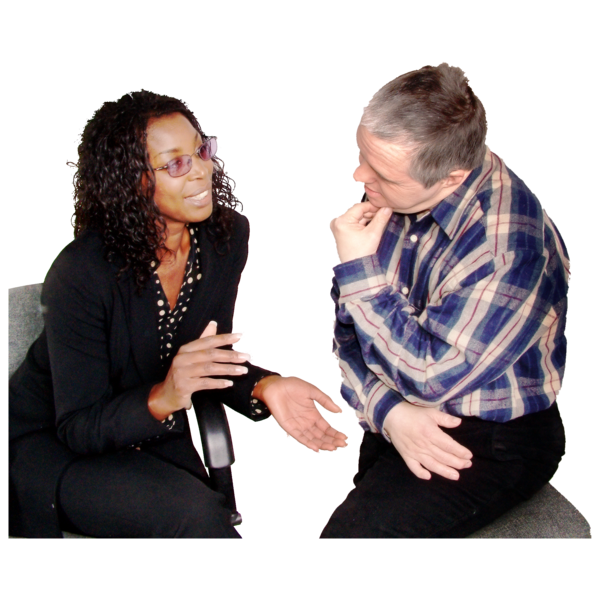Funded by the Department of Health, the free online Raising our sights guides are aimed at commissioners, families and others who are responsible for supporting or developing services for people with PMLD within their local communities.
The guides have been developed to help local areas meet the recommendations from Professor Jim Mansell’s Raising our sights report (2010), which looked at services and support for people with PMLD.
Ten guides cover a range of key issues relevant to people PMLD and their families including effective communication, support for families,
advocacy
 Advocacy is when you get support to have your say.
, and personalisation. They each give examples of best practice, and have sections to help families and others challenge and
campaign
Advocacy is when you get support to have your say.
, and personalisation. They each give examples of best practice, and have sections to help families and others challenge and
campaign
 A campaign is when people work together to try to change something.
where they are not getting the right support.
A campaign is when people work together to try to change something.
where they are not getting the right support.
In addition, there is also a guide designed specifically for commissioners with practical help and advice on how best to provide services at a local level. Six short films, also available online, share the stories of individuals with PMLD and bring the guides to life.
The Raising our sights guides were officially launched at the PMLD Network
Conference
 A conference is a meeting that lots of people are invited to.
2013 in Nottingham today. Speaking at the event, Beverley Dawkins OBE, Policy
Manager
A conference is a meeting that lots of people are invited to.
2013 in Nottingham today. Speaking at the event, Beverley Dawkins OBE, Policy
Manager
 A manager is a boss at work. They tell you what you need to do and give you support if you need it.
at Mencap said:
A manager is a boss at work. They tell you what you need to do and give you support if you need it.
at Mencap said:
These guides and films will help raise the profile of people with PMLD, and their families. The stories will inspire families about what is possible in terms of services and support, and the practical information will equip them to ask for this.
They are an absolute must-read and must-see for people responsible for commissioning services and other health and social care
Social care means the services that give care and support to people who need it. professionals, who are often not aware of how best to support this group of people.
The guides are available at www.mencap.org.uk/raisingoursights.
-ENDS-
For further information, please contact the Mencap press office on mendia@mencap.org.uk or 020 7696 5414.
About Mencap
There are 1.5 million people with a
learning disability
 A learning disability is to do with the way someone's brain works. It makes it harder for someone to learn, understand or do things.
in the UK. Mencap works to support people with a learning disability and their families and carers by fighting to change laws and improve services and access to
education
A learning disability is to do with the way someone's brain works. It makes it harder for someone to learn, understand or do things.
in the UK. Mencap works to support people with a learning disability and their families and carers by fighting to change laws and improve services and access to
education
 Education is when you learn things. When you fill in a form to get a job, education means you write where you went to school, college or university.
,
employment
Education is when you learn things. When you fill in a form to get a job, education means you write where you went to school, college or university.
,
employment
 Employment means having a job.
and
leisure
Employment means having a job.
and
leisure
 Leisure is when you have time to do things you enjoy like playing sports or going to the pub.
facilities. Mencap supports thousands of people with a learning disability to live their lives the way they want.
Leisure is when you have time to do things you enjoy like playing sports or going to the pub.
facilities. Mencap supports thousands of people with a learning disability to live their lives the way they want.
About the PMLD Network
The PMLD Network is a group of
organisation
 An organisation are a group of people who work together.
and individuals working together to improve the lives of people with profound and multiple learning disabilities. Visit www.pmldnetwork.org.
An organisation are a group of people who work together.
and individuals working together to improve the lives of people with profound and multiple learning disabilities. Visit www.pmldnetwork.org.
What does profound and multiple learning disabilities mean?
People with profound and multiple learning disabilities (PMLD) are unique individuals but sometimes it is helpful to talk about groups of people who have common concerns, have distinctive needs, face barriers to being included and who need help to fight for their equal
rights
 Rights are the things everyone should be allowed to do like have a say, or go to school.
.
Rights are the things everyone should be allowed to do like have a say, or go to school.
.
People with profound and multiple learning disabilities:
- have more than one disability
- have a profound learning disability
- have great difficulty communicating
- need high levels of support
- may have additional sensory or physical disabilities,
- complex health needs or mental health difficulties
- may have behaviours that challenge us.